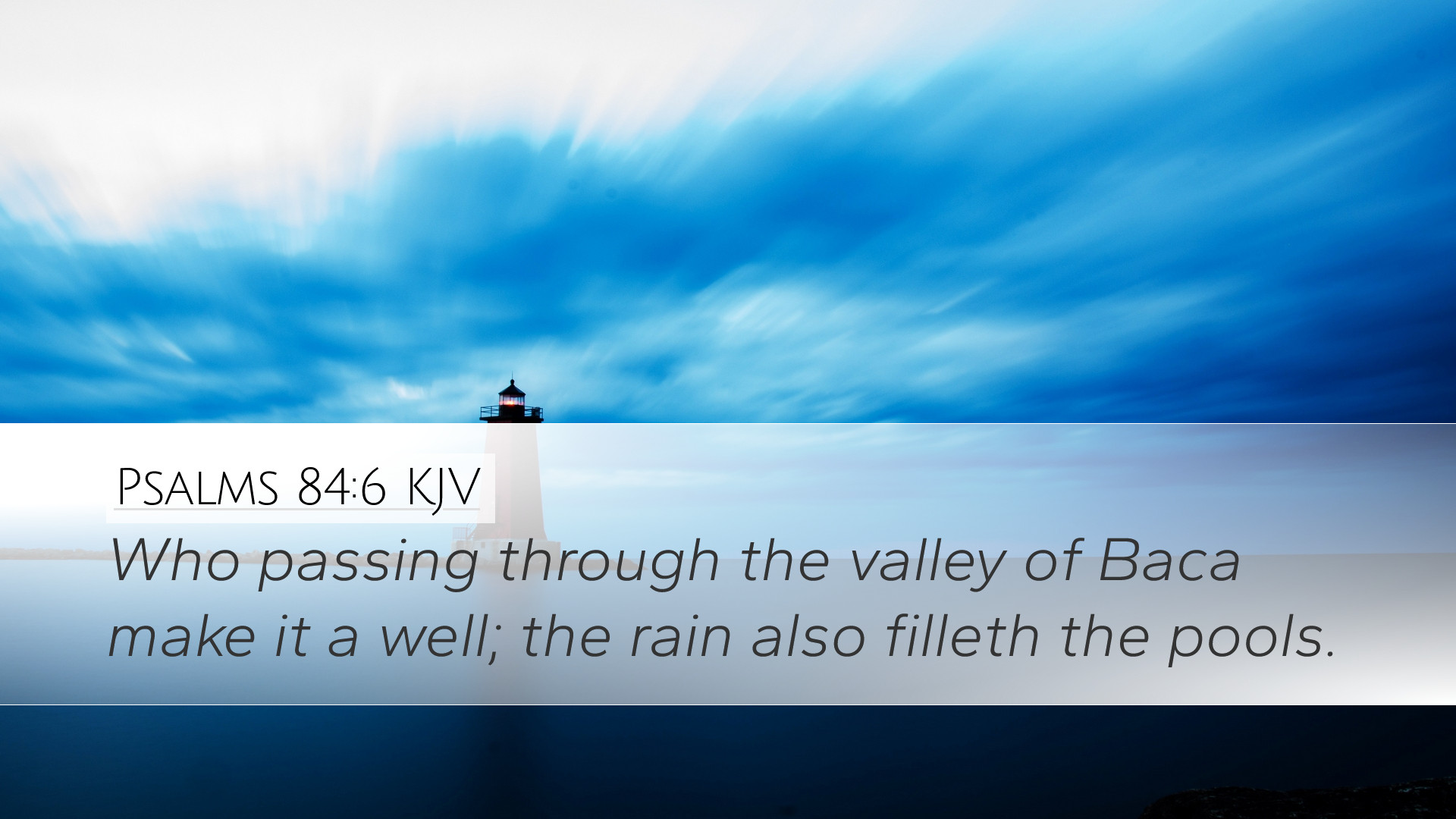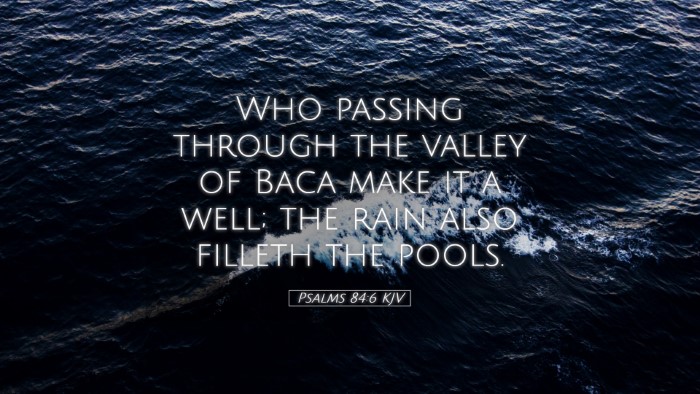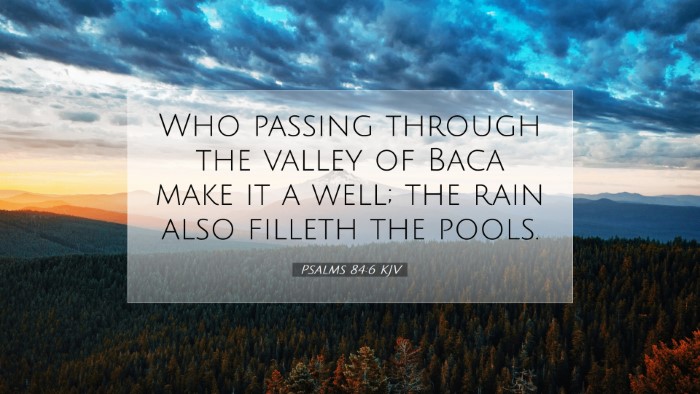Psalms 84:6 Commentary
This verse, which reads "Who passing through the valley of Baca make it a well; the rain also filleth the pools," is rich in imagery and provides profound insights into the life of faith. The following commentary synthesizes insights from various public domain sources, including those of Matthew Henry, Albert Barnes, and Adam Clarke, illuminating the deeper meanings found within this text.
Contextual Background
The Book of Psalms is a collection of hymns and prayers that express the diverse experiences of life in relation to God. Psalm 84, attributed to the sons of Korah, is a pilgrimage psalm that reveals a deep longing for God, underscored by themes of joy and spiritual renewal.
Verse Insights
The imagery of the "valley of Baca" is particularly evocative. The term "Baca" is often associated with weeping or sorrow. The valley symbolizes a place of trials and tribulations that every believer will encounter at some point in their life journey.
Key Themes
- Transition through Trials: The phrase "passing through" indicates that the trials faced are not permanent, but rather a part of a larger journey toward spiritual fulfillment. As Matthew Henry notes, Christians are often required to traverse difficult paths, yet they do so with purpose and hope.
- Transformation of Pain: The act of making the valley of Baca a "well" demonstrates that believers can turn their struggles into sources of strength. Albert Barnes emphasizes that the metaphor suggests a transformation of sorrow into joy, whereby trials serve to deepen one's faith.
- Divine Provision: The latter part of the verse speaks of rain filling the pools. Adam Clarke interprets this as God’s provision and blessing following the trials. Just as the rain replenishes dry grounds, God’s presence renews the weary soul.
Spiritual Significance
In the life of a believer, the valley of Baca can represent various forms of personal anguish — whether spiritual, emotional, or relational. This passage encourages the faithful to embrace their suffering with the confidence that it is transformative. Each trial passed through can become a wellspring of faith.
Encouragement in Suffering
Many saints throughout Scripture, including David, endured significant sorrows but emerged victorious through faith. This psalm serves as a reminder that suffering can lead to deeper intimacy with God. As Matthew Henry notes, it is through such experiences that believers often find God's presence more near and comforting.
Community Perspective
Moreover, this verse also highlights the importance of community in facing life's adversities. Believers are encouraged to support one another in their valleys of tears, creating wells of compassion and communal strength. This solidarity can be transformative, reminiscent of how rain nurtures a parched land.
Practical Applications
Pastors and teachers can draw from this passage for motivational sermons centered on resilience in faith. Here are some applications:
- Emphasize the Journey: Encourage congregations that their spiritual journey may lead through valleys, but God walks with them.
- Encourage Transformative Practices: Invite believers to find ways to turn their hardships into opportunities for growth, such as engaging in prayer, creating spaces for worship, or acts of service.
- Highlight God's Faithfulness: Remind congregations of God’s provision during difficult times, assuring them that seasons of drought will ultimately be followed by outpouring blessings.
Conclusion
Psalms 84:6 stands as a pillar of encouragement and hope, illustrating that through God’s grace, even the most challenging paths can lead to spiritual renewal and strength. The reflections from historical commentaries by Henry, Barnes, and Clarke provide a timeless perspective that continues to resonate with believers today, reinforcing faith in the face of life's valleys.


